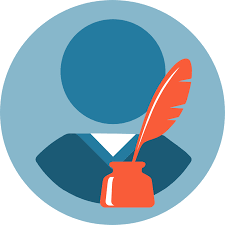First, one should understand the concept of conflict of interest in order to understand unlawful acts. The purpose of the law is to preserve and enforce justice, which includes the right to privacy, and to prevent the appearance of impropriety, which occurs when an individual knowingly uses their position to influence the outcome of a particular case or settlement. A potential client that utilizes one’s knowledge to influence the outcome of a case does not fully understand how to use this knowledge.
If a lawyer has a personal stake in a case, and that stake can be influenced by unlawful acts, then this is considered a conflict of interest. The ethical standards of the state bar association require that all lawyers disclose potential conflicts of interest so that they may avoid such problems. However, a student that is not aware of the difference between a potential conflict of interest and an actual conflict must ask for help in understanding the laws surrounding conflicts of interest.
The student should also consider the ways in which a client may employ illegal or unethical means to influence a case outcome. One example is when a client hires a dishonest person to represent them. Such a situation is also considered a violation of the code of conduct. In some cases, it is possible for the client to employ improper means, but the client has the option to get legal counsel to make sure that they do not violate the code of conduct.
Additionally, the student should understand the role of a lawyer who investigates unlawful acts. This may sound obvious, but some lawyers may not consider themselves investigators or may not fully understand the scope of their obligations under the code of conduct. It is also possible for a lawyer to engage in illegal activities if the code of conduct does not apply.
Unethical behavior that can occur when investigating unlawful activities includes: discussing a case with a source who is not a party to the case, or taking money from a source that has not been compensated. It is not uncommon for the student to be expected to pay for their own costs when conducting an investigation, even if the activity was not sanctioned by the state bar association. Sometimes, the fees that are charged for investigating violations are waived by the bar association.
Some laws that can be investigated by a lawyer include: the ethics code of conduct, the rules regarding conflicts of interest, and regulations that govern the licensing of lawyers. It is very important for the student to understand the specific law regarding their area of study, and any statutes that pertain to their practice. Having this information readily available will aid the student in succeeding in their state bar examination.
There are many tools that can be utilized by the student to become better informed about the law and how to utilize this knowledge. These tools include books and online tutorials. Most law school websites also have a wealth of information that the student can refer to in their preparation for the bar exam.
The rules and regulations of the state bar association may also be reviewed and learned by the student in written form. Online tutorials can provide a vast amount of information about the rules and regulations that the student will encounter during the examination process. These tutorials will also give the student valuable information about how to prepare for the examination. By taking advantage of these resources, the student can maximize their chances of passing the exam.
A major concern of students who are preparing for the bar exam is time management. This is because there are many courses and projects that must be completed prior to the examination. taking the bar exam. Thus, the student needs to make sure that they understand the need for reading materials and whether or not they are required to have a written test.


